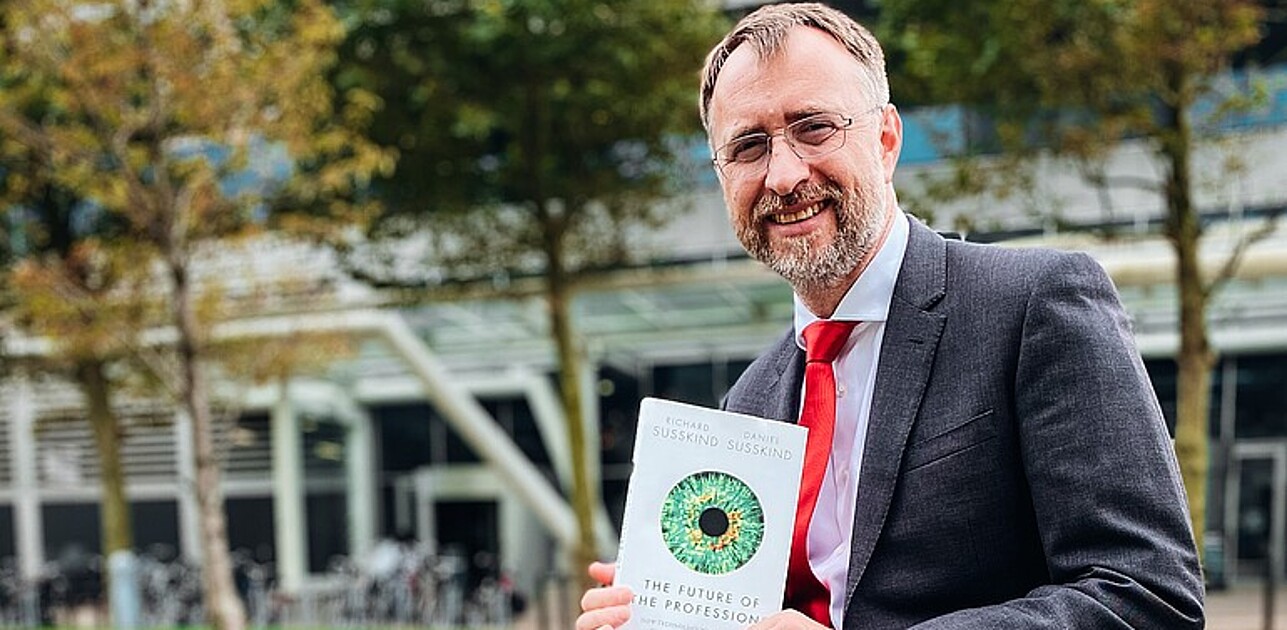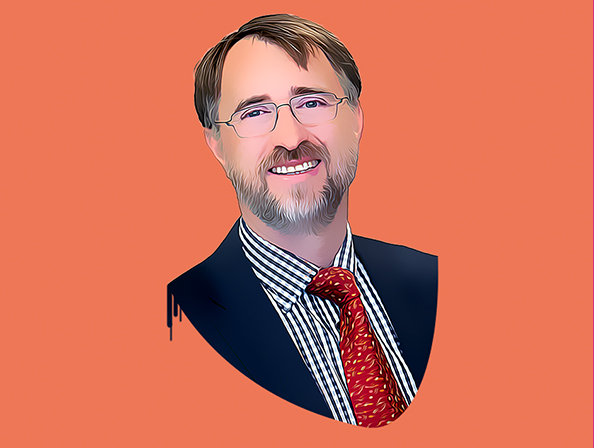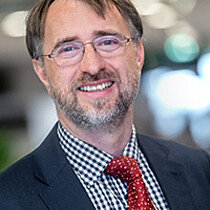

Article: Friday, 18 September 2020
With all the books on management, leadership and business out there, what is really worth a read? In our new RSM Reads series, professors from Rotterdam School of Management, Erasmus University (RSM) tell you all about their favourite books, and why these inspired them. Dean Ansgar Richter kicks the series off. He recommends The future of the professions: how technology will transform the work of human experts (Oxford University Press, 2015), written by Richard Susskind and Daniel Susskind.
“Alumnus Tom Marshall recommend it to me, and I found it to be really thought-provoking. I have done a lot of research on professional services. There is a lot of fluff out there on the nature and the future of the professions, but this book is well-researched; yet at the same time, it is eminently readable.
“The central argument of the book is that new technologies, such as machine-learning systems, artificial intelligence, combined with the availability of big data, will increasingly become superior to human beings in terms of the capacity to provide expert knowledge. Such expert knowledge is at the heart of the professions, for example medicine, law, accounting and others. As a result, Susskind and Susskind – they are father and son! – even predict that the demand for human providers of professional services may decline in the long run (50 years or so).”
“I wouldn’t say that this book has changed my life – but it has helped to clarify my thinking. I don’t even agree with all of their analyses: overall, I remain more positive about the future of the professions than Susskind and Susskind are. Still, I like it when a book challenges my assumptions and takes me on an intellectual journey. The professions are very close to me: my wife is a doctor, my daughter studies law, and I worked for a number of years as a management consultant (although that is clearly not a profession in the classical sense of the word). I believe that the demarcations between these professions will become increasingly blurred, and that the type of capabilities that professionals will require in future will go far beyond their mastery of bodies of expert knowledge.”
“Erasmus University educates students for work in the professions: doctors, lawyers, accountants, and members of adjacent professions. I believe that having a clearer view of how your field of work is developing is pretty important for our students, their parents, our alumni, participants in our executive education programmes, and of course, for us academics. But I also find the book just plainly interesting. There is some scope for shortening here and there, but if you are interested in the future of knowledge-based work, this book is one for you to read.”
Who needs human providers of professional expertise when computers can provide this expertise faster, cheaper, and more widely? The development and rise of IT, the internet and artificial intelligence are challenging professional sectors such as medicine, law and accountancy. The development and rise of IT, the internet and artificial intelligence are challenging professional sectors such as medicine, law and accountancy. These sectors have begun to fragment. Watch RSM’s free online lecture by Prof. Ansgar Richter to explore this topic.



Science Communication and Media Officer
Rotterdam School of Management, Erasmus University (RSM) is one of Europe’s top-ranked business schools. RSM provides ground-breaking research and education furthering excellence in all aspects of management and is based in the international port city of Rotterdam – a vital nexus of business, logistics and trade. RSM’s primary focus is on developing business leaders with international careers who can become a force for positive change by carrying their innovative mindset into a sustainable future. Our first-class range of bachelor, master, MBA, PhD and executive programmes encourage them to become to become critical, creative, caring and collaborative thinkers and doers.
